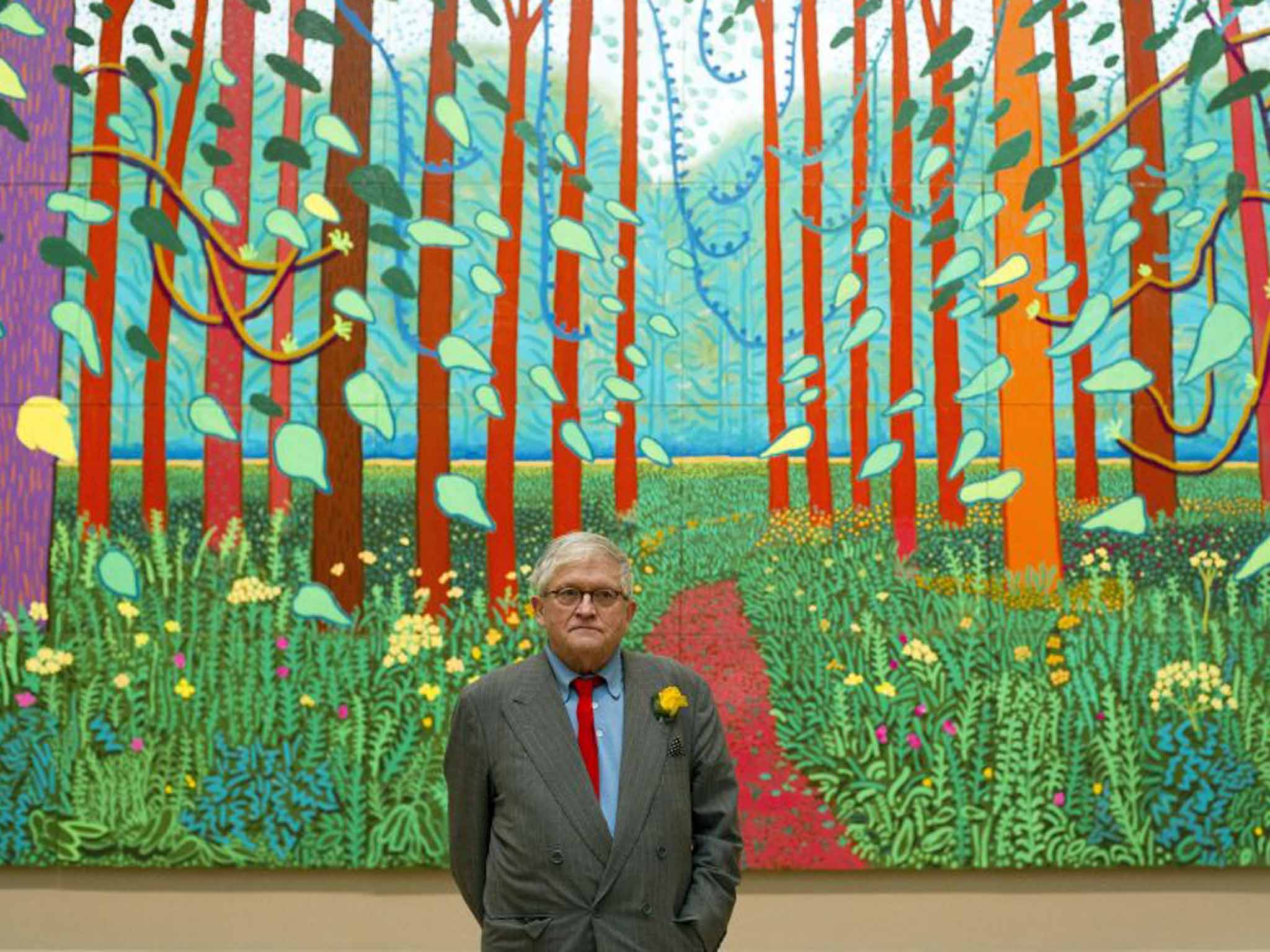David Hockney is pro fracking: 'We can go on and on about oil, but if there wasn't any, what would happen?'
The controversial method used to extract gas and oil from the ground has been the target of several environmental campaigns

Your support helps us to tell the story
From reproductive rights to climate change to Big Tech, The Independent is on the ground when the story is developing. Whether it's investigating the financials of Elon Musk's pro-Trump PAC or producing our latest documentary, 'The A Word', which shines a light on the American women fighting for reproductive rights, we know how important it is to parse out the facts from the messaging.
At such a critical moment in US history, we need reporters on the ground. Your donation allows us to keep sending journalists to speak to both sides of the story.
The Independent is trusted by Americans across the entire political spectrum. And unlike many other quality news outlets, we choose not to lock Americans out of our reporting and analysis with paywalls. We believe quality journalism should be available to everyone, paid for by those who can afford it.
Your support makes all the difference.David Hockney, one of the most influential British artists of the 20th century, has lent his support to fracking, because he believes it is too difficult to stop the controversial method of extracting fossil fuels for energy now the UK has started it.
Otherwise known as hydraulic fracturing, the process of drilling and injecting fluid into the ground at high pressure to release the natural gas inside has been heavily criticised by environmental campaigners.
As well as the negative impact fracking has on global warming in general, this is because of the sheer quantity of toxic chemicals, such as mercury and uranium, used to produce the liquid – and the subsequent non-biodegradable chemicals left in the ground to seep out into the surrounding environment once the process is complete.
Asked during an online Q and A whether fracking should be allowed to continue, the famed Yorkshire-born painter said that he believed the British need for oil outweighed the negative impact of the process.
“I suppose you’ve got to say yes, because you can’t stop it really,” he said.
“They needed coal, they needed oil, we can go on and on about oil, but if there wasn’t any, what would happen?
“On the Wolds they are beginning to build wind turbines. I know one place where for 200 years there were these trees, I painted them and then one day they were all chopped down.
“I was horrified. But then I thought: ‘Well, I have a pencil, and pencils are made of wood, so somebody has to chop them down'.”
His words come as high levels of cancer-causing chemicals, or carcinogens, were discovered in the air around a number of fracking sites in the United States.
Scientists said that the findings should call for tougher regulations to control gas and oil extraction in the UK.
Hockney’s comments also follow the launch of the Move Your Money campaign in October.
HSBC, Barclays, Royal Bank of Scotland, Lloyds and Santander were all among those targeted by customers, who are concerned about global warming, and are threatening to close their bank accounts unless the institutions sever their ties with fossil fuel industries.
HSBC is the biggest backer of the fossil-fuel industry, investing £17bn in loans, bonds and shares in 2012, according to estimates from the Green European Foundation, based on the bank’s annual reports and data from the research group Thomson One.
Meanwhile, Barclays invested £15.6bn over the same period, following by Lloyds at £15.5bn and Royal Bank of Scotland, at £14.4bn.
Among the famous names opposed to fracking are Dame Vivienne Westwood, Yoko Ono, Alec Baldwin, Sean Lennon, Robert Redford, Mark Ruffalo and Mario Batali.
Join our commenting forum
Join thought-provoking conversations, follow other Independent readers and see their replies
Comments